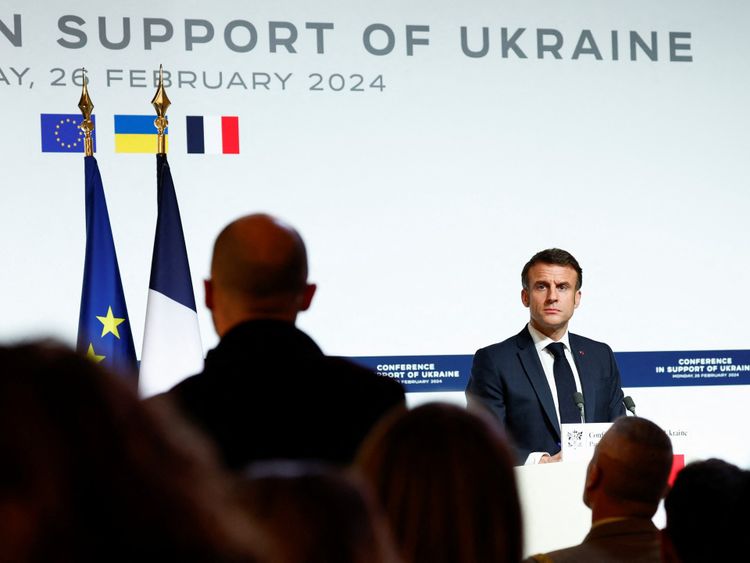NATO denies plans to send troops to Ukraine

Stoltenberg's response to Macron's comments arises while the Kremlin cautions about the possibility of a war if the Western countries deploy their troops to Ukraine.
The secretary-general of NATO has stated that they do not intend to deploy troops to Ukraine. Russia made a statement asserting that if NATO did send troops, they would engage in military action with the alliance.
In reaction to comments made by the French leader Emmanuel Macron the day before, Jens Stoltenberg dismissed claims on Tuesday that NATO nations were exploring the prospect of deploying their soldiers to Ukraine amidst the Russian invasion.
The head of NATO stated that they have no intentions of sending combat troops to Ukraine for battle.
During a gathering of European leaders on Monday, Macron stated that there isn't an agreement currently in place to officially send soldiers to the area. However, he mentioned that it's possible that troops could be deployed in the future.
Upon hearing the remarks of the French leader, Russia promptly responded. The Kremlin representative, Dmitry Peskov, deemed Macron's proposal of Western countries dispatching troops to Ukraine as a significant addition to the discussion.
He stated that it would be completely against the interests of NATO's European members. If it were to happen, we wouldn't be discussing the possibility of conflict, but the certainty of it.
Stoltenberg rejected the possibility of NATO using military force, but reaffirmed the alliance's unwavering commitment to providing robust backing to Kyiv.
He stated that Russia's actions towards Ukraine are an act of aggression that go against international regulations. He added that under international law, Ukraine possesses the right to defend themselves, and we must assist them in protecting that right.
During a gathering of European leaders in Paris, Macron spoke about Ukraine in an attempt to present himself as an advocate for the country in Europe, especially since the United States' support for Ukraine appears to be decreasing.
NATO offers Ukraine assistance and support that does not include lethal resources, however many participating countries have been independently providing weaponry and bullets to Ukraine.
However, a unanimous agreement from all member nations would be necessary before making a decision to send troops.
The leader of France chose not to reveal the identity of the countries that might be contemplating sending troops, using the term "strategic ambiguity".
He mentioned that currently, there is no agreement to officially and formally deploy soldiers on the ground. Nevertheless, he emphasized that there is still a possibility for such action to occur because of the current situation and circumstances.
On the day of Tuesday, the Prime Minister of France, Gabriel Attal, repeated this statement, stating that in a war, nothing can be excluded.
The news of the prospect was warmly received in Ukraine. Mykhailo Podolyak, an adviser to the President, expressed his satisfaction on Tuesday. He stated that this development displays a clear understanding of the dangers a militant and belligerent Russia poses to Europe.
However, other countries acted quickly to attempt to decrease tensions.
During a meeting between Polish Prime Minister Donald Tusk and Czech Prime Minister Petr Fiala, both known for supporting Kyiv strongly, they stated that they had no intentions of dispatching any soldiers.
Sweden, which is planning to become a part of NATO, mentioned that they have no plans of sending any boots-on-the-ground personnel to the country currently engulfed in war.
For now, Swedish Prime Minister Ulf Kristersson has no plans to join the transatlantic military alliance, despite his country overcoming its last hurdle towards membership. He made this statement during an interview with Swedish public broadcaster, SVT.
The Prime Minister of Slovakia, Robert Fico, made it clear that his government has no intention of offering Slovak soldiers to assist Ukraine. However, Fico, who frequently uses language in favor of Russia, admitted that certain nations are considering the potential for making deals to assist Ukraine in defending themselves against the Russian invasion.
Al Jazeera and other media companies





























































